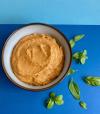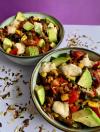
Hair loss is a common issue many people experience after bariatric surgery. This is partially due to rapid weight loss, however it can also be a sign of inadequate protein intake.
Protein containing foods provide the building blocks to renew and repair body cells including hair, nails, skin and muscle. It therefore makes sense that if daily requirements are not met, these processes are not optimised. So how can you support the body to minimise hair loss and is a collagen supplement truely necessary? Lets break it down to find out:
What Is Collagen?
Collagen is a protein and an important component of our skin, bones and connective tissues. There are several different types of collagen however, the vast majority are classed as type I, II, or III. Type I is the most common and it is present in our skin, where it helps with elasticity and strength. As collagen breaks down over time, signs of aging such as wrinkles can appear. Type II is primarily found in cartilage, and type III is found in the blood vessels, internal organs and also in the skin.
What Happens When You Take a Collagen Supplement?
When we consume collagen it is broken down into amino acids, mostly glycine, proline and hydroxyproline. From here the amino acids enter an ‘amino acid pool’ where they will be used as the building blocks for the body’s own production of collagen OR for other proteins in the body. This is an important point to note as often people buy collagen supplements hoping they will help with a specific concern such as hair loss. Unfortunately it is not quite as simple as that and our body will prioritise the amino acids to where they are needed most e.g. healing from your surgery, supporting your immune system or building muscle.
Food Sources of Collagen
Collagen is found in animal products that contain bone, muscle or other connective tissue. Think meat, fish and chicken or fluids such as bone broth. But like collagen supplements, the body doesn’t absorb collagen in it’s whole form, but rather breaks it down into its constituent amino acids to be used where they are needed most.
Other Nutrients That Support Collagen Production
Vitamin C, zinc, iron, and sulfur are important co-factors in the production of collagen. in fact some studies have even found correlation between adequate levels of zinc and iron and less reported hair loss following bariatric surgery. Eating foods rich in these nutrients plus taking a good quality bariatric supplement every day will help to support your body to produce collagen.
Should You Pay For a Collagen Supplement?
The amino acids required for making collagen can come from any protein source whether thats a collagen supplement, piece of meat, fish or chicken, dairy products, eggs, legumes, tempeh or tofu. Collagen supplements can be pricey and they’re not necessarily better than your typical protein rich foods. In saying that, collagen supplementation when used in moderation is not going to be harmful, so go ahead if this is something that appeals to you. Just don’t forget it won’t make up for a diet that is low in protein overall so make sure you are consuming between 60-80g of protein per day or 1g of protein for each kilogram of your adjusted body weight (see how to calculate this here).


